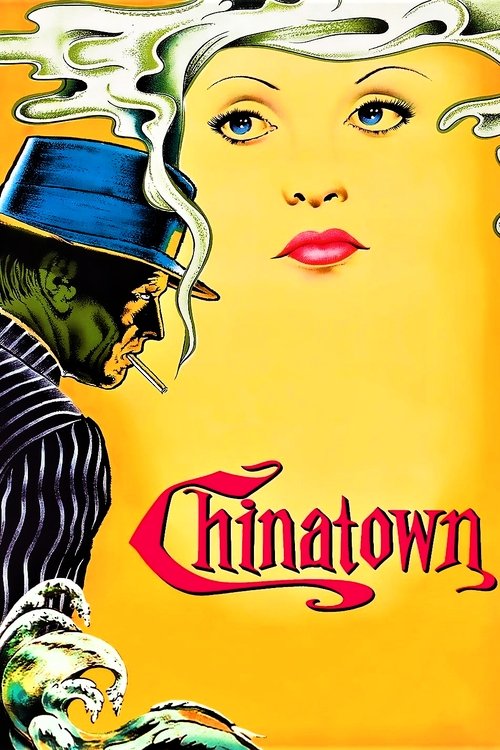
Title: Chinatown
Year: 1974
Director: Roman Polanski
Writer: Robert Towne
Cast: Jack Nicholson (J.J. 'Jake' Gittes), Faye Dunaway (Evelyn Cross Mulwray), John Huston (Noah Cross), Perry Lopez (Lieutenant Lou Escobar), John Hillerman (Russ Yelburton),
Runtime: 130 min.
Synopsis: Private eye Jake Gittes lives off of the murky moral climate of sunbaked, pre-World War II Southern California. Hired by a beautiful socialite to investigate her husband's extra-marital affair, Gittes is swept into a maelstrom of double dealings and deadly deceits, uncovering a web of personal and political scandals that come crashing together.
Rating: 7.916/10